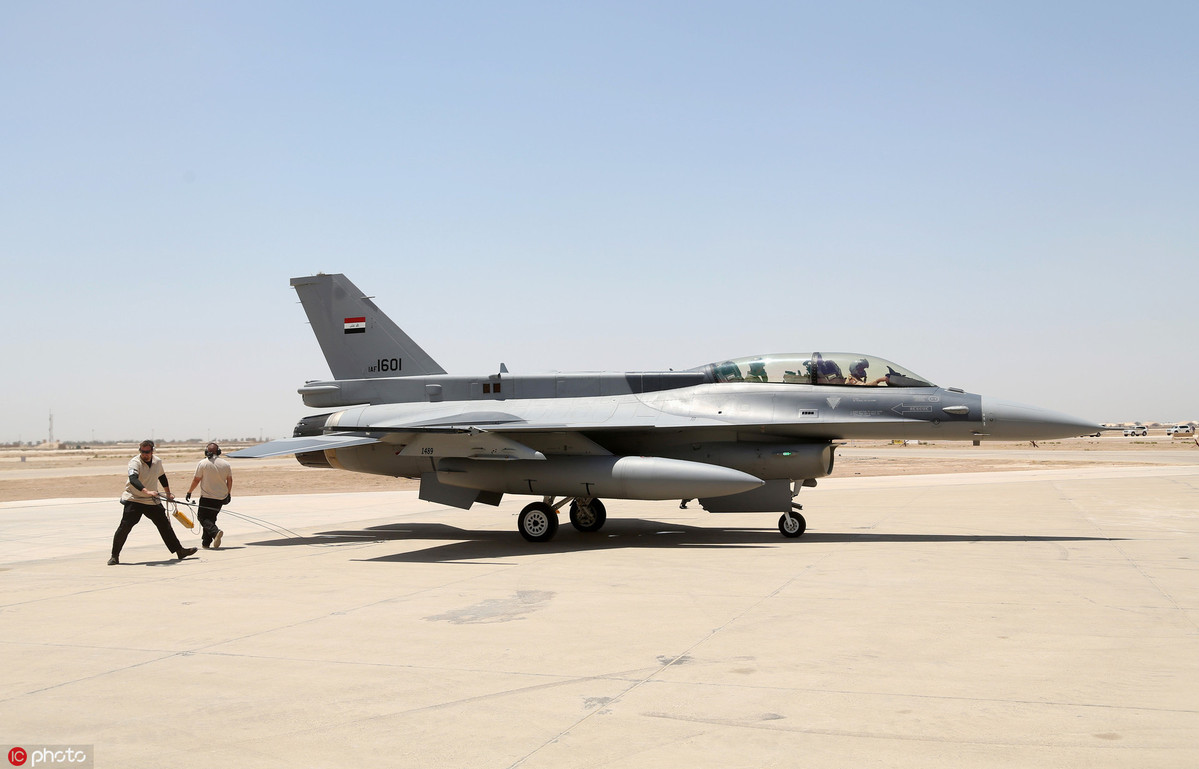
A US-made Iraqi air force F-16 fighter jet prepares to take off at Balad air base, Iraq, July 20, 2015, file photo. (Photo: IC)
Following its $2.2 billion arms deal with Taiwan that was announced on July 9, the United States Department of State has reportedly "informally" notified corresponding House and Senate committees that it supports the sale of F-16 fighter jets to the island.
Not surprisingly, the Chinese government has lodged "solemn representations" against the $8 billion deal, as it has each time arms sales to the island have been proposed or carried out.
That is because they seriously violate the one-China principle and the three China-US joint communiqués, especially the Aug 17, 1982, communiqué, and interfere in China's internal affairs and undermine China's sovereignty and security interests, as the Chinese Foreign Ministry pointed out on Monday.
Of course, should the deal get the green light and be inked by both Washington and Taipei, the actual delivery will not take place for several years.
Even if they were to be delivered immediately, 66 F-16s will do very little to change the military imbalance between the two sides of the Taiwan Straits.
Given the mainland's asymmetrical and constantly enlarging military advantage against Taiwan, rather than constituting a severe security challenge to the mainland, the surplus F-16s to be sold to Taiwan represent a matter of principle in Beijing's eyes. It holds sovereignty over Taiwan to be a "core interest" as well as a diplomatic redline in its relations with foreign countries.
Not to mention there is the legitimate concern that the Washington may be employing the arms sales to Taiwan, along with the ongoing protests in the Hong Kong Special Administrative Region, as bargaining chips in its trade talks with Beijing.
However, playing the Taiwan card will more likely than not ruin the prospect of a deal rather than facilitate it. As Beijing has repeatedly stated, a deal will not be made at the expense of such a key national interest.
The only thing the proposed arms sale can do is to send what Washington has time and again been warned are the "wrong messages" to Taipei, encouraging it to edge further toward a military showdown with the mainland, the outcome of which is easily predictable. Such a scenario would be detrimental to Taiwan, the mainland and the US.
Given it announced it would impose sanctions on the companies involved in the July deal, Beijing's response to the latest arms sales has actually been disproportionally restrained so far considering the severity of the matter.
But Washington should stop its grave interference in China's internal affairs, cease selling arms to the island and end all military contacts with it, otherwise China will have to take measures to safeguard its interests depending on how the situation develops.


